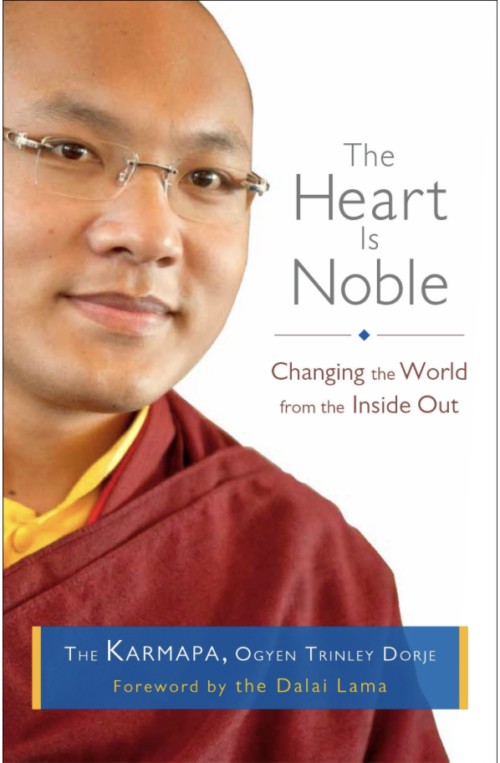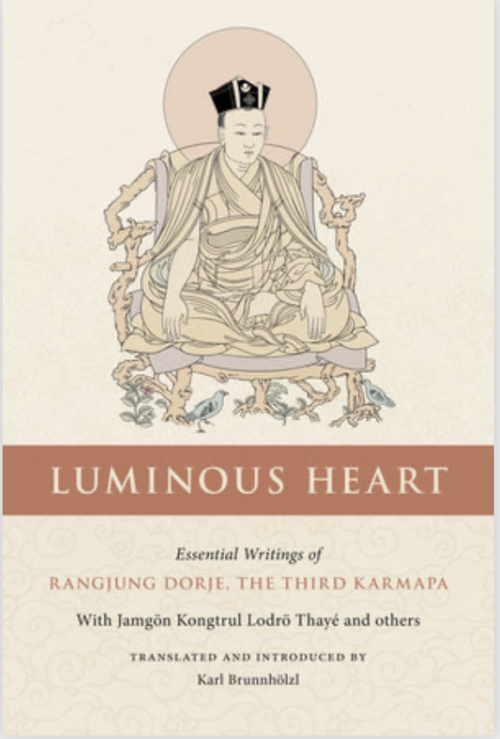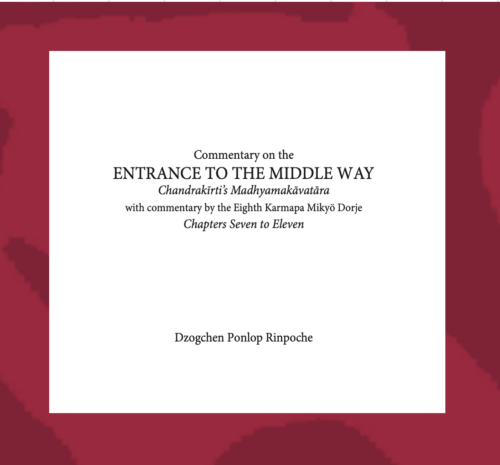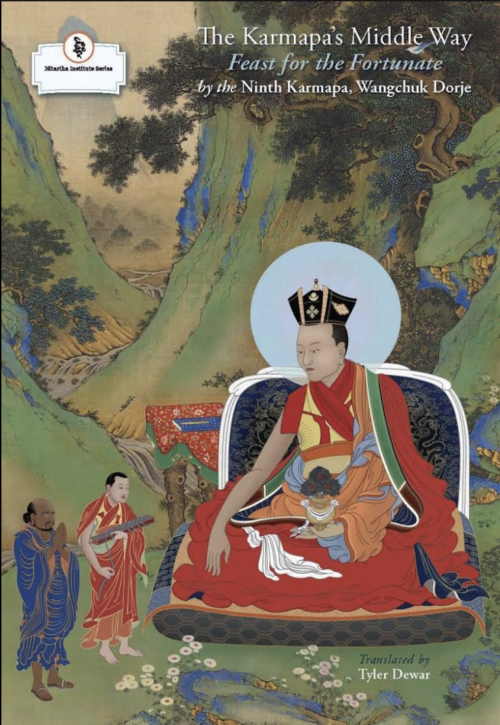- The hardcopy book is shipped from the US. International customers may wish to explore local booksellers, Shambala Publications, or Amazon to save on shipping cost, or purchase the Kindle edition.
-

- The hardcopy book is shipped from the US. International customers may wish to explore local booksellers, Shambala Publications, or Amazon to save on shipping cost.
Author: Karmapa Ogyen Trinley Dorje
If you are inspired to take up his challenge, the Karmapa offers a path for participating in a global community that is based on compassion. In these chapters, he shares his vision for bringing social action into daily life, on a scale we can realistically manage through the choices we make every day—what to buy, what to eat, and how to relate honestly and bravely with our friends and family and coworkers. His fresh and encouraging perspective shows us that we have the strength to live with kindness in the midst of the many challenges we face as socially and environmentally conscious beings. Because he sees the world through the lens of the interdependence of all beings, he sees that humans can change social and environmental problems by changing their attitudes and actions. And so, he shows ways that we can change our world by changing ourselves—by examining our own habits of consumption and by being willing to look into how our food reaches our table and how the products we buy are made. In his chapter on gender, he points out that we don’t have to label others according to a social construct.
If his viewpoint seems optimistic, it is—and it’s also demanding. The Karmapa calls on us to open our mind and heart to the innumerable connections we share with others—in our families, communities, social systems, and on our planet. Thanks to the depth of his spiritual training, and the breadth of his curiosity about the world and his love for it, he presents a relevant framework for understanding what it means to be human now—and why it’s imperative that we concern ourselves with the well-being of all others. He points to a world we can create through our own effort, using a resource we already have in abundance—the basic nobility of our human heart. The 17th Gyalwang Karmapa, Ogyen Trinley Dorje, is the spiritual head of one of the major schools of Tibetan Buddhism. The 900-year-old lineage of Karmapas has included some of Tibet’s greatest spiritual masters. Born to nomadic parents in rural Tibet, he was identified while still a young child as the heir to this leadership position. In 2000, the Karmapa’s dramatic escape to India from Chinese-ruled Tibet at the age of fourteen propelled him onto the world stage. Since then, he has emerged as an international Buddhist leader and environmental activist, founding Khoryug, a region-wide environmental protection program. The Karmapa has been dubbed the "new face of Tibetan Buddhism," and many Tibetans look to the Karmapa for inspiration in their struggle to preserve their embattled culture. In 2008, he made his historic first visit to America. -

- Available as an eBook for Apple and Android devices.
- The hardcopy book is shipped from the US. International customers may wish to explore local booksellers, Shambala Publications, or Amazon to save on shipping cost.
Translator: Dr. Mitra Karl Brunnhölzl
An extraordinary collection of writings on buddha nature by the Third Karmapa Rangjung Dorje (1284-1339). The Third Karmapa Rangjung Dorje’s unique and balanced view synthesizes Yogācāra Madhyamaka and the classical teachings on buddha nature. His work focuses on the transition from ordinary deluded consciousness to enlightened wisdom, the characteristics of buddhahood, and a buddha’s enlightened activity. Included are commentaries by Jamgön Kongtrul Lodrö Tayé that supplement the view of the Third Karmapa on two fundamental treatises on buddha nature, emphasizing the luminous empty mind of buddha nature as presented by the great Indian masters Maitreya and Asaṅga. For those practicing the sutrayāna and the vajrayāna in the Kagyü tradition, what these texts describe can be transformed into living experience. -

Commentary by Dzogchen Ponlop Rinpoche
This series explicates one of the principal Indian classics of the Madhyamaka tradition, Chandrakirti’s Madhyamakavatara (Entrance to the Middle Way), along with the Kagyü commentary by the eighth Karmapa, The Chariot of the Dakpo Kagyüs. These transcripts cover the Madhyamakavatara’s eleven chapters, which correlate with the ten bhumis (grounds) and the ten paramitas (perfections), plus the ultimate bhumi of buddhahood. The focus is particularly on the sixth chapter of the Madhyamakavatara, which discusses prajna (transcendental knowledge) and its realization of emptiness. Main topics include the selflessness of phenomena and the individual, and the impossibility of finding a self anywhere with the range of phenomenal experience. Includes root text by Chandrakirti and commentary by Mikyö Dorje, translated by Elizabeth M. Callahan.
